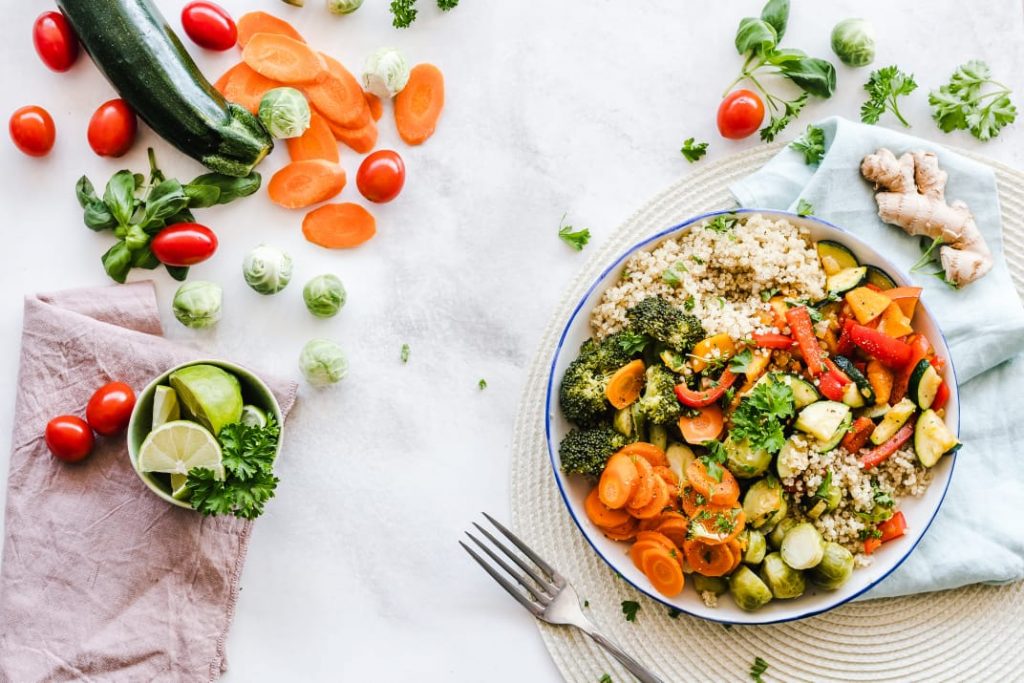
Foods Good for Acne, Diet in Acne
Whenever you get acne or pimples, your mind immediately thinks of skincare products to get rid of acne. But ever wondered about the reason for acne? In most cases, it’s because of the foods you eat, and your lifestyle. If you eat foods good for acne, your skin will glow.
Acne and pimples are a clear sign that the body is out of balance, and the sebaceous glands are shedding toxins and excess oil. Excessive oil production on the skin surface causes dead skin cells to accumulate and become acne or pimples. Shiny, flawless skin is on the wish list of most of us, but then comes the problem of acne or pimples, which can be demoralizing.
Here is a list of some foods which have a direct relation to acne.
Drink more water
Your body is 60% water, so you need to drink enough water to improve your body function. Drinking water is also a key to get the right amount of calories daily. We often make the mistake of starving because of thirst, so when in doubt, drink water first. Water is the basis of healthy, clean skin, so aim for eight glasses of water daily.
Ditch Dairy (but keep Greek yogurt)
Dairy cows are treated with synthetic hormones that affect their milk production. Researchers suggest that when you use dairy products, those hormones can upset your hormonal balance. It can cause acne.
Dairy products are high in sugar (yes, lactose is also sugar, just like glucose and fructose). In particular, however, milk consumption has been linked to an increase in acne. Dairy products replenish our bodies with nutrients such as calcium and protein. You don’t have to eliminate dairy from your list – try sugar-free Greek yogurt (or as close to sugar-free as possible) as a source of calcium, protein, and probiotics.
Avoid sugar and refined carbohydrates
If your diet is rich in foods and beverages such as soda, white bread, white rice, and cakes, you are more likely to get acne. These foods contain more sugar, salt, and fat than we need. The simple sugar in these foods enters the bloodstream very quickly. It means that they have a high glycemic index, a measure of how food affects blood sugar. When your body produces more insulin to lower blood sugar, it affects other hormones that can increase the level of oil in your skin.
Dark chocolate
Dark chocolate is a healthy type of chocolate that you can try. (It is relatively low in sugar and depending on the type contains little or no milk.) It also contains zinc, another nutrient against acne. Fortunately, it’s delicious too.
Fruits and vegetables rich in antioxidants
Antioxidants can have a beneficial effect on acne. Antioxidants are in fruits and vegetables, including berries, peppers, and spinach. Also, eating healthy foods high in antioxidants can combat free radicals and oxidative stress in the body, which is said to calm acne. Oxidative stress occurs when more free radicals than antioxidants fight them are present
Green tea
Try to include green tea in your diet. It is high in polyphenols. It increases blood flow and oxygen to the skin which improves health.
Fatty fish
Omega 3 fatty acids are one of the magic nutrients for the skin as it provides a healthy glow within the skin that we all want. They heal the skin from the inside out and reduce acne scars on the face.
Eat high fiber foods
People who eat a lot of fiber can see their acne get better. High fiber foods can help control blood sugar, which is great for keeping acne away. Whole grains, beans, apples, Sweet potatoes, Berries, cucumber, and carrots are easy ways to add some fiber to your diet.
Eat skin-friendly nuts
People with acne often have a low level of antioxidants, such as vitamin E and selenium. Almonds, peanuts, and brazil nuts are rich in vitamin E and selenium. These nutrients protect cells from damage and infection. But they are also a good option for acne. So there is nothing wrong with including it in your diet. Just don’t overdo it.
Oysters
They contain a lot of zinc, which is an important nutrient for your skin. Among other things, it can help kill the bacteria that cause certain types of acne. It also helps the body stop the production of chemicals that can cause inflammation leading to acne. However, excessive use of zinc can cause health problems. Adults should not take more than 40 mg of zinc daily.
Seaweed
Whether you eat it in sushi rolls, salads, or as a salty snack, it’s a great source of iodine. It is essential to keep your thyroid gland running, which is very good for the skin. Iodine is the most important element in regulating skin moisture levels, but too much iodine at a time can make you burst. Most adults need 150 micrograms a day.